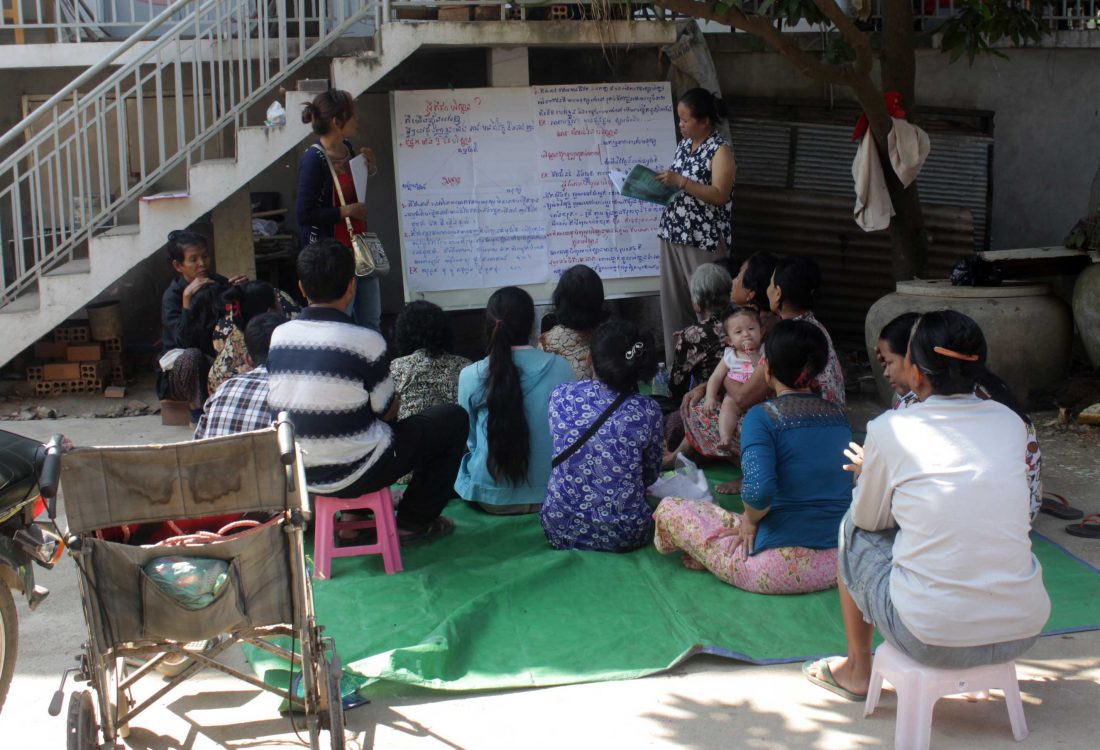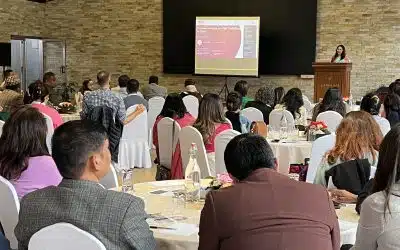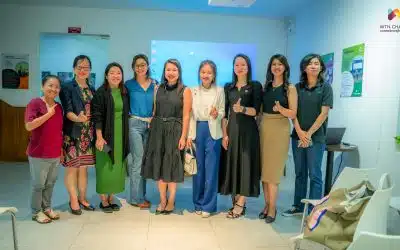InAsia
Insights and Analysis
Poor Waste Management Threatens Phnom Penh
July 27, 2016
As more rural residents move to Phnom Penh in search of work, the city’s population has nearly doubled over the last decade. Estimates suggest it could reach 2.9 million by 2025. Meanwhile, new construction projects have driven thousands of urban poor out of the city center to peri-urban areas where services are few or non-existent. Cambodia’s capital is literally bursting at the seams with the garbage produced by its growing population, and, despite efforts to expand services, is struggling to keep up.

Garbage piles up in Phnom Penh. The city struggles with maintaining growth and providing waste management services to its population. Photo/Flickr user jmbaud74
According to a recent Asia Foundation/ODI report, in Phnom Penh municipality, 40 percent of residents have no garbage collection. For the poorest households in the outer khans (districts), the figures are twice as high. A poor waste management system has led to illegal dumping at informal dumpsites, on-site burning of waste, and the accumulation of household waste in waterways, drainage systems, and community streets. The accumulated waste fouls water sources, releases toxic gases during burning, threatens public health, and reduces the overall livability of communities.
While the city is working to improve and expand collection services, lack of education and public awareness of the impact of waste on the environment and health is an impediment to progress. Many Cambodians do not see the benefits of trash collection due to the cost of services and the availability of alternative disposal methods, such as burning or dumping illegally. Only about 30-50 percent of households sign up for a service where it is available. In addition, community and local authorities generally pay less attention to urban services, especially waste management, in the poorer areas of the city.
Solid waste management is an even more complicated issue in Cambodia because it involves coordination and buy-in from the service provider, government, and community. Each of these stakeholders has a very different incentive (the provider wants to make money, individuals may want to “free ride” or not pay for the service, and the government wants a clean environment for public health, tourism, and elections). Getting everyone to work together requires bringing these stakeholders together, but also identifying and mobilizing leaders in the community to serve as focal point persons so that efforts are sustainable.
Since 2014, The Asia Foundation and local NGO Urban Poor Women Development have been working with three low-income communities made up of 219 households on the outskirts of Phnom Penh to bring together stakeholders and raise awareness of waste management. These communities (Chamroeun, RuseySras, and Phal Andet in ChbarAmpov Districts) are located in lowland areas where monsoon flooding makes the small roads nearly impassable for garbage trucks. In addition, the houses are very close together, blocking garbage trucks from entering to collect waste. The inability of a collection truck to access the areas, coupled with the sharp increase in population growth, has plunged the community into grave environmental consequences, with waste piled on roadsides, river banks, and underneath houses. In addition, waste separation has never been a practice in Cambodia, so introducing the concept is challenging.
The Asia Foundation has brought together local officials from these three communities, including the district deputy governor, Sangkat (village) chief, and representatives from a waste collection company for a series of meetings to discuss challenges and solutions surrounding waste management. To ensure that the priorities of the communities were included in decision-making, the communities selected six local leaders to participate in a series of trainings on the environmental impact and details of waste management.

The campaign included training sessions with community members about how to manage waste properly.
Following the trainings, these leaders held community sessions to educate community members on the most critical areas of waste management – packing, discharge, collection schedule, composting, and impacts on environment and health. Village chiefs also participated in some sessions to help influence people’s habits.
To mobilize the public, we also conducted a waste collection campaign with over 200 participants from the community, officials, and non-governmental organizations (NGOs). The campaign featured an interactive forum which allowed participants to ask questions on the health risks posed by waste, trash collection procedures, including separation, packing of waste, and truck scheduling. Forum participants were then organized into groups and deployed to different roads in the community to collect waste. This activity served as a model for best practices, and encouraged people to pay more attention to proper waste handling in the community.
The results of these effort have been immediate and significant. Officials, through close consultations with residents, have established three designated collection points, one for each community, that are accessible by truck, where residents can now bring their garbage. Residents have also reported that the community is now much cleaner and more hygienic and that the number of children getting sick has dropped.
The lessons from this project will only become more important in Cambodia as a new sub-decree on waste management mandates that the responsibility be devolved to the community (khan) level. Cambodia is on its way to becoming a cleaner and healthier society for all if the government continues to work with local communities on identifying and targeting ongoing issues, educating citizens on the importance of solid waste management, and demonstrating their commitment to a brighter future.
Kry Sopheap is a senior program officer for The Asia Foundation in Cambodia. The views and opinions expressed here are those of the individual author and not those of The Asia Foundation or its funders.
About our blog, InAsia
InAsia is posted and distributed every other Wednesday evening, Pacific Time. If you have any questions, please send an email to [email protected].
Contact
For questions about InAsia, or for our cross-post and re-use policy, please send an email to [email protected].The Asia Foundation
465 California St., 9th Floor
San Francisco, CA 94104
The Latest Across Asia
News
April 2, 2024
Program Snapshot
March 28, 2024
Program Snapshot
March 28, 2024
Program Snapshot
March 25, 2024

2024 Lotus Leadership Awards
Thursday, April 25, 2024, New York City
The Lotus Leadership Awards recognize contributions towards gender equality in Asia and the Pacific







0 Comments